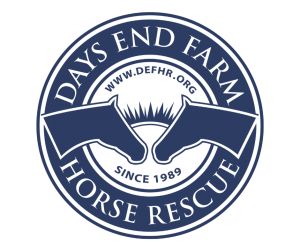Issues
METS may be new, but the need to safely transition horses is not.
Horses transition from one owner to the next for many reasons. An owner may experience financial hardships that require they make a choice between food for their horse or food for their families. An owner may have a medical or physical condition that prohibits them from providing adequate care. An owner may have to move across the country or may have lost their property in a divorce. A child may go off to college, an owner may have purchased a young or feral horse without knowing how to properly raise and train it, or the horse just might not be the right fit.
No matter the reason, the fact is that the more times a horse transitions from one owner to another, the more likely it becomes at risk.
Educating potential owners about the commitment required to properly care for a horse is important, and there are many programs that have taken on that task. In an ideal world, every horse owner would keep a horse for life, but the we recognize that is an ideal that is not always possible.
No matter the reason, METS is here to ensure that horses have safe alternatives.
Livestock auctions are not the best option.
Listing a horse for free on Craigslist is not the best option.
Although relinquishing a horse through either venue can result in a happy ending, there are no guarantees. METS was created to help owners find other transition options.
Why Livestock Auctions and Free Ads are NOT the best choice for horses in transition
METS has several goals. One of the most important is to keep Maryland horses out of the slaughter pipeline.
The MHC has supported passage of the S.A.F.E. Act to prohibit the transport of equines to Canada or Mexico to be slaughtered for human consumption.
An overview of the S.A.F.E. Act is provided by the Animal Welfare Institute at https://awionline.org/content/safeguard-american-food-exports-safe-act.
The specific bills (S.1706) (H.R.113) are located at:
Senate: https://www.congress.gov/bill/115th-congress/senate-bill/1706
House of Representatives: https://www.congress.gov/bill/115th-congress/house-bill/113
Horses that are shipped to slaughter can come from various sources. Most are purchased at livestock auctions. Others may be (unknowingly) given away to people who claim they will offer the horse a good home. Many owners are unaware that this happens.
The Economics of Kill Pens, published by EQUUS in February 2017, offers a clear explanation of why programs like METS work with owners to find better alternatives.
Previous research shows that the vast majority (>90%) of horses shipped to slaughter are in good condition. These are horses that can be rehabilitated, retrained, or repurposed for a new job. They are marketable, and they have other options.
The physical process of transport and slaughter across the borders can be found on many websites. Details and images will not be posted here, but owners are encouraged to do their homework. Then, call METS to learn what other options are available.

